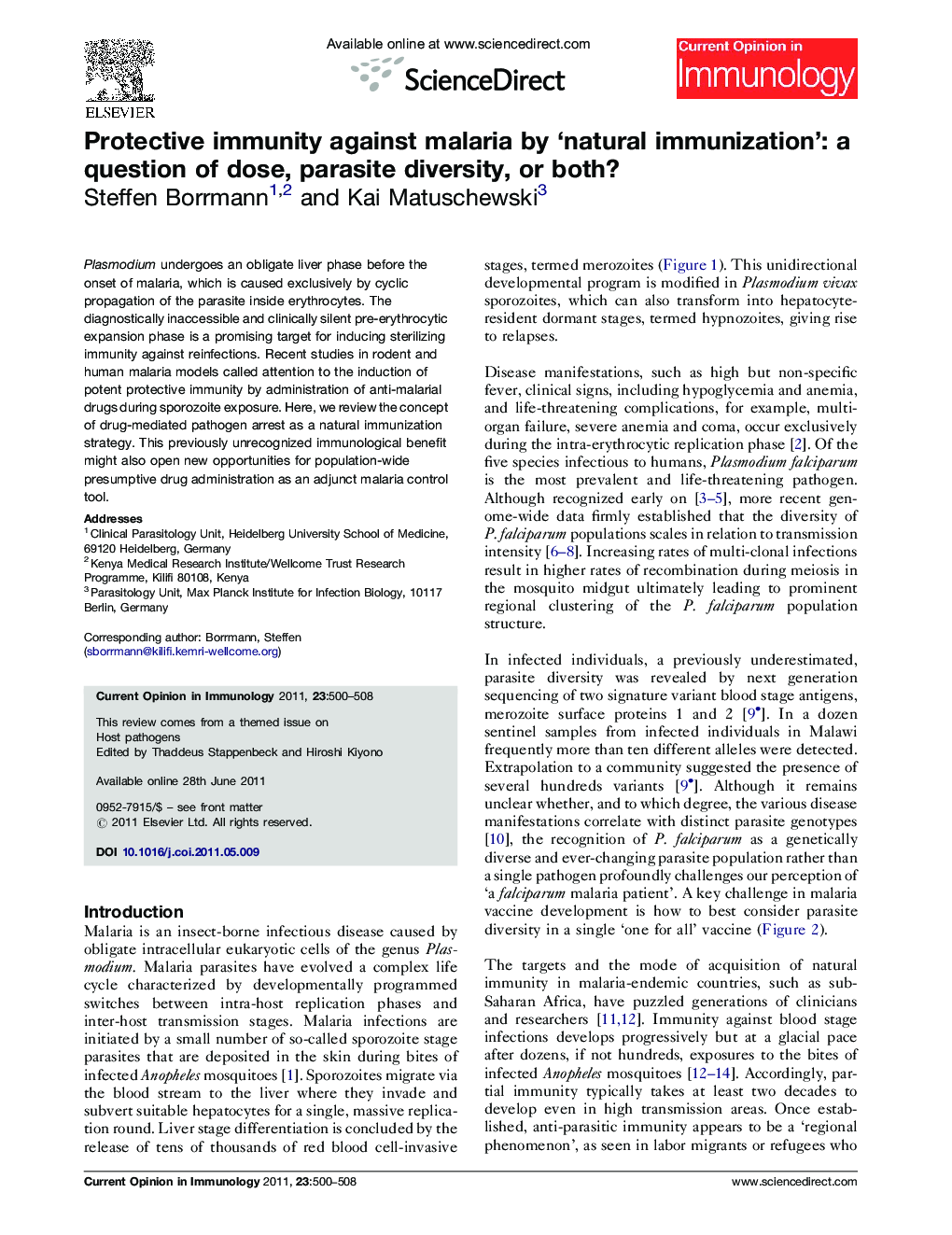| Article ID | Journal | Published Year | Pages | File Type |
|---|---|---|---|---|
| 3346120 | Current Opinion in Immunology | 2011 | 9 Pages |
Plasmodium undergoes an obligate liver phase before the onset of malaria, which is caused exclusively by cyclic propagation of the parasite inside erythrocytes. The diagnostically inaccessible and clinically silent pre-erythrocytic expansion phase is a promising target for inducing sterilizing immunity against reinfections. Recent studies in rodent and human malaria models called attention to the induction of potent protective immunity by administration of anti-malarial drugs during sporozoite exposure. Here, we review the concept of drug-mediated pathogen arrest as a natural immunization strategy. This previously unrecognized immunological benefit might also open new opportunities for population-wide presumptive drug administration as an adjunct malaria control tool.
► A recent experimental human challenge study established a new benchmark for malaria vaccine development. ► Polyfunctional effector memory T cells (TEM) were identified as correlates of protection against malaria. ► Proof-of-principle studies of ‘natural immunization’ by sporozoite exposure during antibiotic cover established potent and protracted protection against reinfection. ► Population genetics revealed a previously underestimated diversity of P. falciparum parasites in infected individuals.
